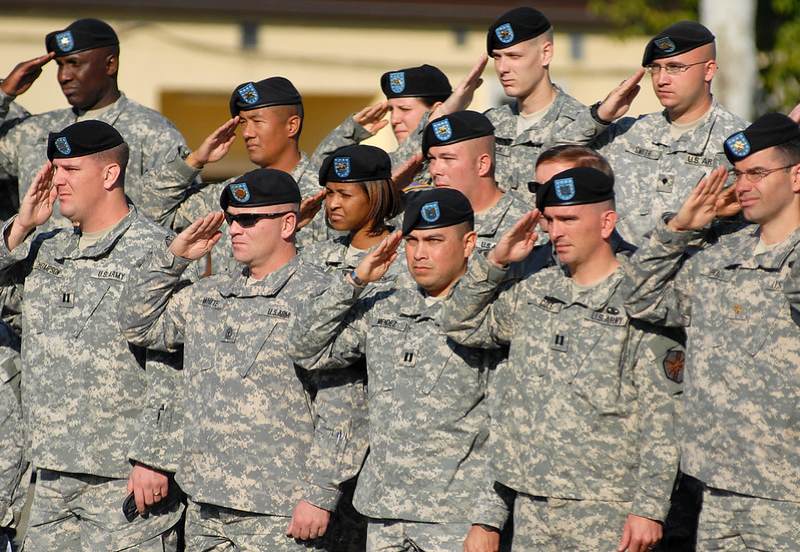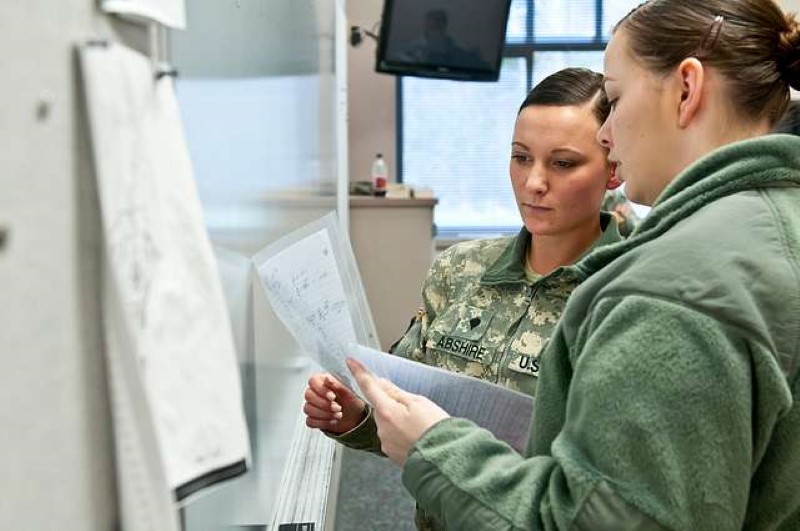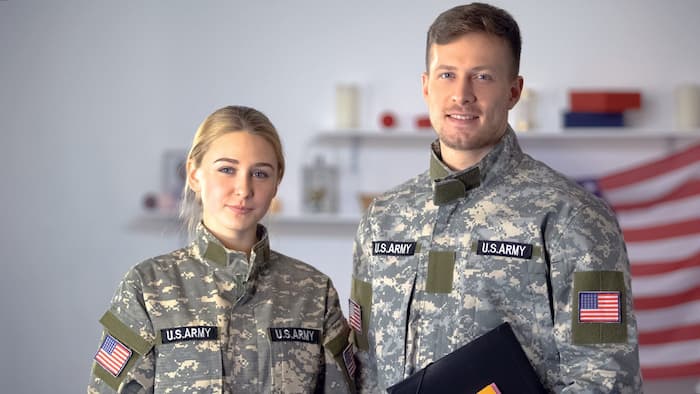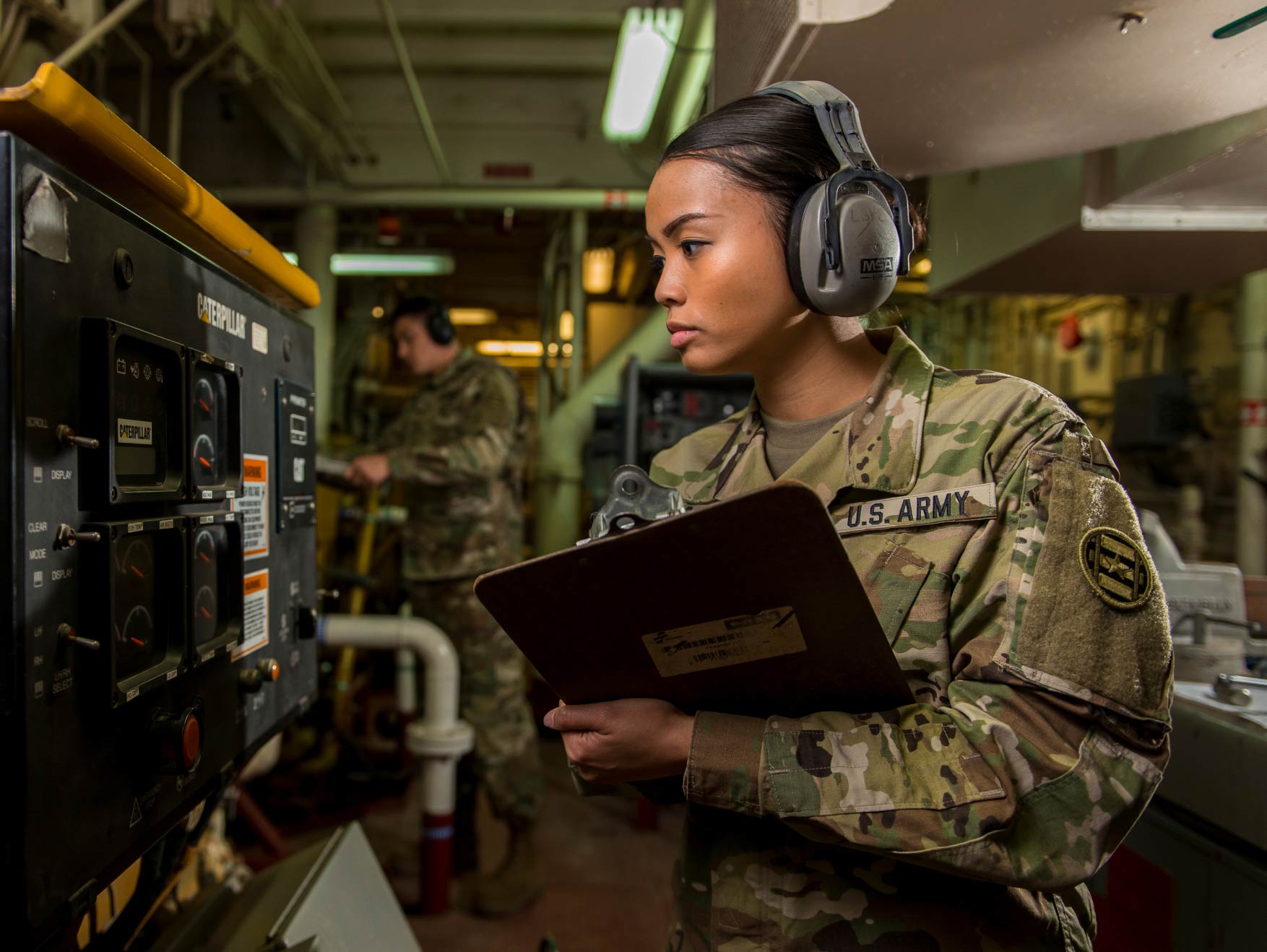We all know that the ASVAB score is the first key you need to achieve to join the military, but how do you know if your score qualifies you for a military job? Are your scores enough for your desired military branch?
We understand all your concerns, so we are here to simplify the process of finding jobs for your ASVAB scores. In this post, you will find all the information you need to choose the most suitable jobs, including how the ASVAB determines your options and the ASVAB score requirements for each military branch. Discover now!
How does the ASVAB score affect job prospects?
The ASVAB scores play a crucial role in your job prospects as all military branches require an ASVAB score for entry. Specifically, your ASVAB scores can determine the following factors in your military career:
- Higher scores mean more opportunities: Higher ASVAB scores open up more opportunities within the military. Scoring well can qualify you for a wider range of jobs and advanced roles. With a top ASVAB score, you will not have to worry about limited job options—just choose the career path that aligns with your skills and interests.
- Determine minimum eligibility branch enlistment: Your AFQT score determines your initial eligibility to enlist in the Army, Air Force, Marine Corps, or Navy, Coast Guard. Meeting the minimum AFQT score requirement for a branch ensures you can pursue at least a position within that branch.
- Determine specific jobs in branches: While the AFQT score assesses general eligibility, your ASVAB
- B line scores determine specific job qualifications. For instance, if your AFQT score qualifies you for the Army, your line scores will specify which roles you are eligible for, such as a firefighter versus a horizontal construction engineer.

What jobs do I qualify for with my ASVAB score?
The answer depends on the unique requirements of each military branch. To determine if your ASVAB score qualifies you for a specific job, you need to consider two key factors in branch requirements: the minimum AFQT score and the line (composite) score.

We provide detailed information on both types of requirements below. By reviewing your ASVAB scores and comparing them to the requirements of your desired branch, you can identify the best career path for you. This approach will help you navigate your military career options more effectively and align your skills with the roles that suit you best.
ASVAB scores for each branch
As mentioned earlier, the US military has different ASVAB score requirements for each branch. Here’s detailed information about the minimum ASVAB scores for each branch:

ASVAB scores for Army jobs (MOS)
According to the SBE, if you have a high school diploma, you have to get a minimum AFQT of 31 to enlist in the Army. However, for those with a GED degree, the minimum score for enlistment is 50.
Besides the minimum score, each Army job is associated with a military occupational specialty code (MOS), its own specific ASVAB score requirements. The Army offers about 200 MOS options. Below are examples of some common Army MOS and their required line scores:
| MOS | Army role | Minimum line score requirements |
|---|---|---|
| 68W | Combat Medic | GT: 107, ST:101 |
| 11B | Infantry | CO: 87 |
| 31B | Military police | ST: 91 |
| 12B | Combat engineer | CO: 87 |
| 15B | Aircraft Powerplant Repairer | MM: 104 |
Follow our post on the Army ASVAB score for detailed information about ASVAB score requirements for available positions in the Army.
ASVAB scores for Air Force jobs (AFSC)
For the Air Force, the minimum ASVAB score required is 31 AFQT for high school graduates and 50 AFQT for those with a GED, according to the official Air Force website. If you meet the AFQT requirements, your line score in the MAGE (Mechanical, Administrative, General, and Electronic) areas will determine your eligibility for specific Air Force jobs within the AFSC (Air Force Specialty Code) system. There are about 130 AFSC for you to choose from. Here are some key AFSCs and their ASVAB score requirements:
| AFSC | Air Force role | Minimum line score requirements |
|---|---|---|
| 3D0X2 | Cyber systems operations | G: 64 |
| 2A6X1 | Aerospace propulsion (jet engines, turboprop and turboshaft) | M: 56 |
| 2A7X1 | Aircraft metals technology | M: 47 |
| 2T2X1 | Air transportation | M: 47, A: 28 |
| 1U0X1 | Remotely piloted aircraft (RPA) sensor operator | G: 64, E:54 |
To know more about MAGE fields, and detailed line score requirements for each AFSC, follow our post on Air Force ASVAB score.
ASVAB scores for Marine jobs (MOS)
Similar to the Army and Air Force, the Marine Corps requires a minimum AFQT score of 31 for high school graduates and 50 for GED holders, as stated by SBE. Your ASVAB line scores are also used to determine eligibility for specific Marine MOS (Military Occupational Specialties). Here are some Marine MOS and minimum ASVAB line score requirements:
| MOS | Marine role | Minimum line score requirements |
|---|---|---|
| 0311 | Rifleman | GT: 90 |
| 0111 | Administrative specialist | CL: 100 |
| 6323 | Aircraft communications/navigation/electrical systems technician | EL: 105 |
| 0231 | Intelligence Specialist | GT: 100 |
Discover our post on Marine ASVAB scores if you want to find more Marine jobs and their ASVAB score requirements.
ASVAB scores for Navy jobs
The Navy usually requires a minimum AFQT score of 31 with applicants who have completed high school. If you have a GED, you will need a score of 50. When qualifying to enlist in the Navy, your composite scores will be used to determine your eligibility for one of approximately 60 Navy jobs, known as Navy Enlisted Classifications (NECs). Here are examples of line score requirements for some NECs:
| NECs | Navy role | Minimum line score requirements |
|---|---|---|
| AWF | Aircrewman | VE+AR+MK+MC=210 |
| IT | Information Systems Technician | AR+MK+ EI+GS= 222 or EL: 222 |
| ND | Navy Diver | GT: 103, MC: 51 |
| LS | Logistic Specialist | GT: 102 |
| MT | Missile Technician | EL: 222 or GT + MK + MC= 222 |
Read more about specific ASVAB scores for Navy.
ASVAB scores for Coast Guard jobs
The Coast Guard has the highest minimum ASVAB score requirement among the branches, with an AFQT score of 36. Coast Guard jobs, referred to as ratings, require specific line scores for eligibility. Below are examples of Coast Guard ratings and their minimum ASVAB line score requirements:
| Rating | Coast Guard role | Minimum line score requirements |
|---|---|---|
| AET | Avionics Electrical Technician | AR + MK + EI + GS = 220 |
| AMT | Aviation Maintenance Technician | AR + MK + EI + GS = 220 |
| AST | Aviation Survival Technician | VE + MC + CS = 162 |
| GM | Gunner’s Mate | AR + MK + EI + GS = 205 |
| ET | Electronics Technician | AR + MK + EI + GS = 220 |
Follow our post on Coast Guard ASVAB scores for more details about the ASVAB minimum score for each rating in the Coast Guard.
FAQs
1. What are the highest ASVAB score jobs?
The highest ASVAB score jobs typically fall within technical and advanced fields that require strong analytical and specialized skills. Here are examples of high-scoring jobs across different military branches:
- Army: Special Forces (18X) – Requires a high GT (General Technical) score.
- Air Force: Air Traffic Control (1C1X1) – Requires high scores in General (G).
- Marine Corps: Avionics Technician (6326) – Requires high scores in Mechanical Maintenance (MM) and Electronics (EL).
- Navy: Cryptologic Technician (CT) – Requires high scores in VE and MK. This role involves deciphering and analyzing encrypted communications.
- Coast Guard: Aviation Maintenance Technician (AMT) – Requires high scores in Mechanical Maintenance (MM).
Read our post on how to get a higher score on ASVAB to get more chances for advanced jobs.
2. What is the average ASVAB score by branch?
Average ASVAB scores vary by branch and reflect the typical performance of recruits. For example, the average AFQT score for the Army is around 50, while the Air Force generally has higher average scores due to its technical focus.
3. What ASVAB score is needed to become a Combat Medic?
To become a Combat Medic (68W) in the Army, you need a minimum GT score of 107 and an ST score of 101. These scores reflect the need for strong technical and general knowledge to perform medical duties in combat situations.
4. What ASVAB score do I need to qualify for Cyber Security?
For Cyber Security roles, you generally need high scores in the General (G) and Electronics (E) composite areas, with strong performance in subtests like Mathematics Knowledge (MK) and Electronics Information (EI). In the Air Force, a Cyber Security Specialist typically requires a G score of 70 and an E score of 60.
5. What ASVAB score is required for Security Forces?
To qualify for Security Forces in the Air Force, you typically need a General (G) score of at least 33. This role requires good overall aptitude and the ability to handle security and law enforcement duties.
6. What jobs in the Army require low ASVAB scores?
If you have a not high score, don’t worry as there are still several Army jobs that require relatively lower ASVAB scores. Here are a few examples:
- Infantryman (11B): This role is one of the core combat positions in the Army and generally requires a relatively low Combat (CO) score of 87.
- Food Service Specialist (92G): Responsible for preparing and serving meals, this job requires a Clerical (CL) score of 90.
- Unit Supply Specialist (92Y): This position manages equipment and supplies, requiring a Clerical (CL) score of 90.
Check out our detailed post on Army job qualifications to find the best jobs with your ASVAB scores.
Final thoughts
Hope that after reading this post, you can find the jobs you qualify for with your ASVAB scores. Be sure to check all the job requirements carefully to ensure you don’t miss any opportunities to enlist in your desired military roles. If you want to improve your ASVAB scores and expand your job options, practice is key. Start with our ASVAB practice tests to get going right away. Work hard, and your efforts will pay off. Wish you success in your military career!




